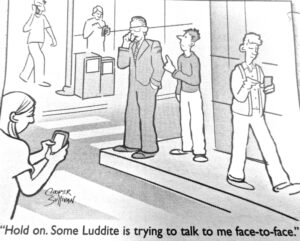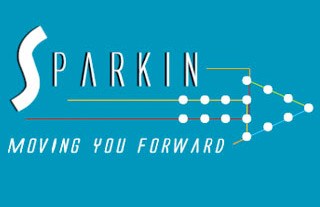Adaptability the Key to Success 2018 and Beyond?
A 2017 report by talent experts Right Management highlighted 91% of HR managers thought that by 2018 individuals would be recruited for their ability to change/adapt. Meanwhile, 53% of employees believed that adaptability would be a key driver for success. Some discrepancy.
______________________________________________________________________________________________________________________________________________________________________
‘It is not the strongest or the most intelligent who will survive, but those who can best manage change.’ (Darwin)

______________________________________________________________________________________________________________________________________________________________________
- Do employees truly underestimate the importance of adaptability or, do they believe other factors (such as intellect and emotional intelligence are more important?)
- The trend for full time roles continues to point to ever shorter tenure in advertising/marketing. The average employ of a CMO whilst up to 44 months in 2017, bucked a ten-year decline prior to last year (Market Technology Insights 3/28/18)
What might exacerbate this further?
i) Corporate needs – Budget pressures point to constant change and push toward flexible work contracts.
ii) Employee preferences – Flexi-work hours/job variety, which many want, provide flexibility, but the but also create much greater complexity/juggling of tasks.
iii) Rapid Technological innovation will continue – Moore’s Law refers to the doubling every two years of the volume/capacity of computer chips, which will make everything move even faster, further challenging business and employees to adapt.
What do you think?
Increasingly It Is Your Adaptability That Will Determine Your Success
Neophilia or ‘to like anything new’, might be something we can all relate to dependent on the context. New places to visit, new foods to eat, all good when they expand who we are, sometimes literally!
But what about new things or circumstances when there is much more at stake, such as new management or new systems at work which may impact our job security? Perhaps a Luddite after all?
What’s typical, most of us don’t like uncertainty, when the stakes are high, when we have much to lose.
Should we even care about how adaptable we are unless we are explicitly assessed for it when seeking employment?
A 2017 report by talent experts Right Management highlighted that 91% of HR managers thought that by 2018, individuals would be recruited for their ability to change/adapt. Meanwhile, 53% of employees believed adaptability, would be a key driver for future success. What might explain this discrepancy? And, given the stated direction of HR managers, what are the keys to you and those you care about developing effective adaptive capability?
‘It is not the strongest or the most intelligent who will survive, but those who can best manage change.’ (Darwin)
First we need to understand adaptability or, ‘the nature of changing or creating modification in oneself to suit a new environment.’
Alessandra and O’Connor in their book ‘The Platinum Rule,’ suggest adaptability consists of two aspects, ‘flexibility’ or our willingness to change and ‘versatility,’ or our ability to change. Perhaps the latter points more to experience and intelligence (IQ) and emotional (IQ) that people believe they possess in sufficient quantity.
Flexibility however, refers more to your willingness to pivot or, to focus your energy/ability to embrace rather than resist change. It is this ‘ability’ of acceptance, the degree to which you are more a ‘cup half full’ optimistic type, which may well explain who actually adapts. If this is true then expect people to be talking much more about optimism quotient’s, or ‘OQ.’
From a personal perspective, having clear options moving forward post-change, (internal or external) which whether exercised or not, can enhance our state of mind, can make us feel less trapped by a changing situation and therefore better able to adapt.
Arguably those with foresight, do and continue to plan for change, anticipating what might happen and prepare themselves accordingly, but not everything can be planned for.
And, even if we did anticipate, is planning and recognizing the same as the ability to actually cope and proactively adapt to change, particularly when it is sudden.
What do you think?
For more information on this subject see the newsletter on the subject https://bit.ly/2ExHOGj and past newsletters too. Feel free to sign up for future letters.
2018 Miami Ad School Parkin Award
A fun reason to head down to Miami, to present the 18th Parkin Award of $1500 (plus $500 coaching).
Congratulations Rachel Eden!
The award goes to the most empathetic account planning graduate.
The award is judged by the students on the course as well as the teachers, teaching the course; (Not the school; Nor me)
Of the 18 winners to date, 9 woman, 9 men. Not planned, but in a truly inclusive world, this is how the numbers should be, or thereabouts!
#MiamiAdSchool #ParkinPrizeWinner #Empathy#AccountPlanningBootcamp
#LifeSkills #EmotionalIntelligence#UberTeamPlayer #ParticipantsDecide
#DerekParkinAward #Winner#Passionate #CareerOptimisation #Advertising
#SparkinCoaching #Careers#KnowYourAudience #ActionNotWords
#ConnectWithPeople #BetterLife #UnitedStates #Inspire #SparkinSearch
#CreativeStrategy#AccountPlanning #StrategicRelationships #CoreSkills #Mentoring
#Action
Becoming one of your agency’s ‘most valuable’ employees
Camels walking through the ocean…That doesn’t happen at least until I saw it, I didn’t believe it. Something almost as unusual as the individual on the career express train that never derails; The individual that’s never been on the wrong side of an agency restructure. Like the camel it’s unusual but still possible. Some potential keys:
Know thyself – Know your strengths and where you can add value and continuously develop them. Have an integrated mindset but be niche a speciality too.
Team player – Help others in the agency develop. Generously share your skills and expertise.
New Business – The lifeblood of any agency – Getting involved in new business and being good at it, both raises your profile and perceived value.
Money – One of the best ways to be valuable to the agency is to be invaluable in helping it acquire and retain income.
Wow factor – Ensure that people enjoy working with you/make them feel good – You do this through being easy and fun to work with but also because you create and innovate.
Over and above – Word hard but where you can and even though already busy, aim to do more than is expected of you.
Active assessment – Know your KPI’s and your clients. Be active in self assessment. Don’t rely on others to do this.
Future mindset – Plan ahead. Know what you want to experience/learn in your new job in preparation for the one after. Make yourself a ‘shoe in’ for it!
Market value – Be aware of your external market value. Be aware of alternative career opportunities; This will give you more confidence in your current role.
Mix it up – Taking time off allows you to sustain focus, energy and passion
Syncing timelines for Success – Your Employer’s and your own
About to accept or start a new job – Why you might not be doing what you expected to be doing, at least not for a while.
You have reached a point in your current job where you are stuck, in terms of feeling as though you are no longer progressing.
Practically, the promotion you want is blocked or, you’ve worked on the same business for three years and the agency doesn’t want to move you or, you’ve worked on all the major accounts of the agency.
You might be frustrated because you don’t feel you can learn anything new, meanwhile you see the world and your peers, all progressing to bigger and better things.
Or, you’re dealing the nightmare scenario, a difficult boss or client that is making your life a living hell. You leave as nothing is likely to change any time soon.
You are ready to make a move. The good news is, you are presented with seemingly, a great career building opportunity. Team, culture, accounts, strategic approach all check out.
At this stage what could go wrong?
You clearly know better than anyone what is attractive to you. What role would allow you to excel, right? Well, yes. And with the information you have everything stacks up. So far so good.
Typically you are hired to address specific client needs but sometimes you are recruited more for where the agency aspires to be versus where the agency is now.
Most individuals will accept at face value, the reason why they are being hired. And most employers will hire specifically for the reasons they say they are hiring.
In all situations’ you are being hired for a recognized skillset. But, though your future employer knows what you can do, they may be hiring you for reasons slightly different to those you signed up for.
Key for you, what job do you want to do now, what’s mission critical versus those things that are ‘nice-to haves’? And do your priorities reconcile with the work your future employer does and expects you to do immediately, versus at some point in the future. Or, is there an understanding that there is a timeline before you get to really use your expertise in the way you want to. Sometimes, there is no understanding!
A classic example, you are hired by a digital agency whose work may be downstream of the lead creative agency. Your new employer hires you not because of an epiphany in the importance of creative strategy rather you are hired to act as a counterbalance to creative strategist working for the lead agency! It’s a defensive hire even if represented otherwise.
The most obvious (and critical) example of a disconnect between employee/employer timelines, intended or otherwise, occur when employers are hiring at the vanguard of organizational or business transformation.
You are promised that your expertise is key to moving the agency in the direction of that change. The problem is that the organization might not be ready for this planned evolution.
Organizational changes that needed to happen prior and concurrent to your hire did not happen or are happening but at a much slower pace. The result for you is, what you hoped to achieve in your new role might take two years versus two months.
A further threat for you, gate keepers/the old guard that might be sitting on agency revenue, oppose the change you bring, extolling what has worked in the past. These individuals or cliques may be perceived as too ‘important’ (despite the fact you were hired to change things) to challenge due to fear if they left or are fired, the revenues they are sitting on might go with them.
There will always be potential challenges beyond yours and to a large extent the agency’s control. It’s key for you to know that your expertise aligns with the organizational needs and ambition of your new employer for the medium but also for the short term.
Having a sense of who key stakeholders are is a given but knowing that they support your expertise is vital. Two action steps you should pursue at interview stage:
Have a few additional meetings beyond those you are directed to have; Ask a few more searching questions that you ordinarily might not ask. These two actions alone may be the difference between a poor move and a great career transition.
Ultimately, what makes your next career move truly redefining in a positive way, is not only clarity about your own objectives and those of your employer but to know that they and the key stakeholders of which they are a part, are aligned.
Bespoke Career Choices
When looking for a job most strategy planners ask ‘what’s on the shelf? (well not literally) but as if going in to a store, they ask ‘what have I got.?’ You all have much more power than you could ever know and a more bespoke role is within reach. The key to bespoke is knowing what you want and having the confidence to pursue it. (This doesn’t mean your feet are not on the ground and pragmatism goes out of the window.) This is why I ‘always’ ask, ‘moving forward, what is your ideal next career challenge/what is progression for you?’
‘Unique’ Candidate Raincheck
Some candidates believe when compared to others, like the glowing waves. what they have to offer is quite unique.
What can enhance the chances of this being true is something regularly practiced by the best candidates, who always seek feedback after interviews/They always seek to improve.
Really smart candidates learn from the new found knowledge and adapt.
The smartest candidates of all, (who always end up with serious consideration, if not the job) know that even when they apply the lessons of the past and do everything they can and what they offer is very differentiated, sometimes still, they won’t be hired!
They know that this is not because they did anything wrong but because every opportunity is unique, (just like them) and simply, in some cases there was an even better ‘unique’ fit for the role.
Following The Money Often Reveals The True Story
Aspiring job seekers, don’t be dazzled by the scenery! Save yourself from a bad job move and get to the reality of what a business actually does sooner rather than later. Inspiring recruiters may tell you what an employer aspires to be, about the new this or the new that division they are going to build which is great. But, you need the reality of what the experience is now. So the questions that get you closer to the truth orient around where your future employer ‘actually makes’ the bulk of its cash from versus where it ‘wants’ to make money. #SmartCareerMoves
Avoiding A Career Ambush – Be Alert and Bring Your ‘A’ Game

Strategic planners on the fastest career track know that getting to the truth of a client’s challenge is key. It’s is equally vital to understand the truth of the consumers served by your clients.
Getting to a genuine understanding of your client’s business gives you a chance of being relevant and better still, of moving the client forward.
In one of life’s great paradoxes, the strategic planner plays the role of the cobbler that wears no shoes/do not do for themselves what they instinctively do for others. That is, apply the same strategic nous and tools to obtaining authenticity when it comes to understanding a genuine career opportunity from a dud.
I hear of almost daily tales of candidates that got duped. But, the storytellers typically don’t see that they are complicit.
New career enhancing roles lie before them and rather than clarify the fundamentals that will define their success in a new role, much is taken at face value. Naiive? Or, a commendable illustration of their trust? It doesn’t matter. The carnage is the same.
Some basics. Whenever you are considered for a career opportunity, it is your knowledge and experience that is sought after. It is perceived to be able to solve one of a range of challenges facing your prospective future employer.
Ultimately what your future employer is seeing is your ability to either help save or make money and preferably both! And this is where it can get dangerous, for you!
The more your perceived ability to make money combined with urgency by the agency to make a hire, the more exponential the chances that they will avoid communicating, miscommunicate or incorrectly communicate information that might otherwise deter you from taking the job.
I don’t mean to say that hiring managers intentionally mislead. I am saying that many people under enough pressure, hiring manager or agency with a pressing client need, may be economical with the truth. This may help relieve client pressure whilst unfortunately not be optimal for you.
The Group Director hired to become a Head of Strategy takes the job because the agency is independent, moves countries and finds out one month in that the agency is being bought by a holding company.
The Director that moves across country to discover one month in that the client, that they moved their lives for, is leaving the agency.
Clearly the agency has to do what it has to do and perhaps the hiring manager or the department head is not party to much larger forces at play. The take out is therefore, you as the individual seeking a career enhancing move have to be alert!
You have to employ that smart truth revealing expertise to your career and most certainly at the inflexion points of progression from one job to another.
To be fair to those hiring, the more ‘you’ want an opportunity at a certain brand or agency, the more you will compromise, the more details you will overlook, the less you will be ‘on your game’ to understand exactly what you might be getting in to.
Indeed, far from applying healthy skepticism that engenders a pragmatic understanding that what one is being told is correct, you seek to reinforce your perceptions of what you want to hear. And, you fail to see the pitfalls.
When you are ‘on,’ you do not ask limiting questions but bigger questions in your quest to understand the truth. You in this mode are in control and driving your quest versus passively being drawn into a career ambush.
Getting to a Robust Understanding of a Job Opportunity – Some thoughts
- Know what do you want to do next
- Know what outputs you want to generate
- Know what defines your success in a new role
- Know what resources are available and timelines in which to achieve specific goals
- Know whether your goals align with those of the leadership of the prospective employer.
- Seek out not ‘sexy’ agency but dynamic client relationships, wherever they are and with them the opportunity for good work
- Seek out those clients that value your expertise and better still the employers that value your expertise equal or (even better for you) over and above other disciplines.
- Clarify where money is made – This is definitive proof as to what the agency says is does reconciles with what it does.. Good to know!
- Ask better questions that reveal the truth to you and not choreographed answers.














